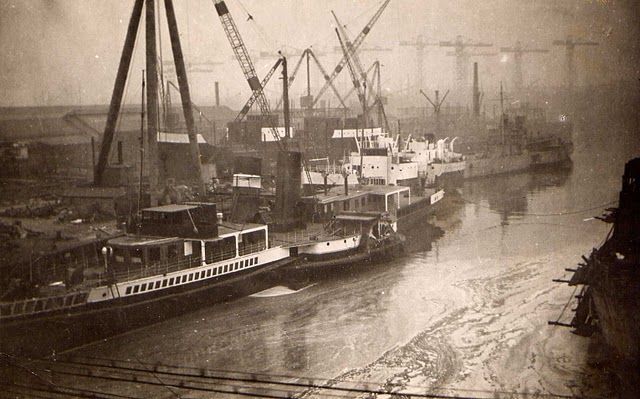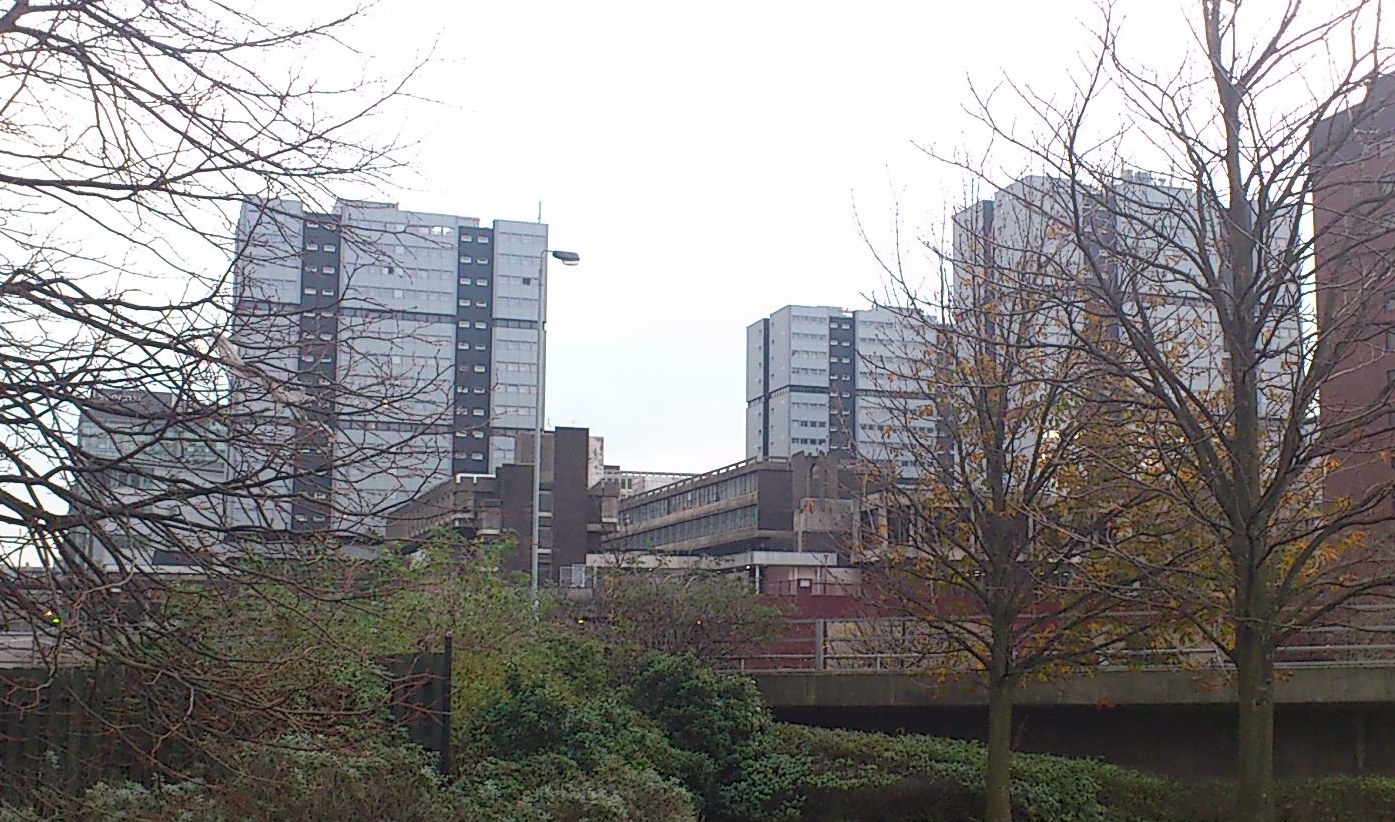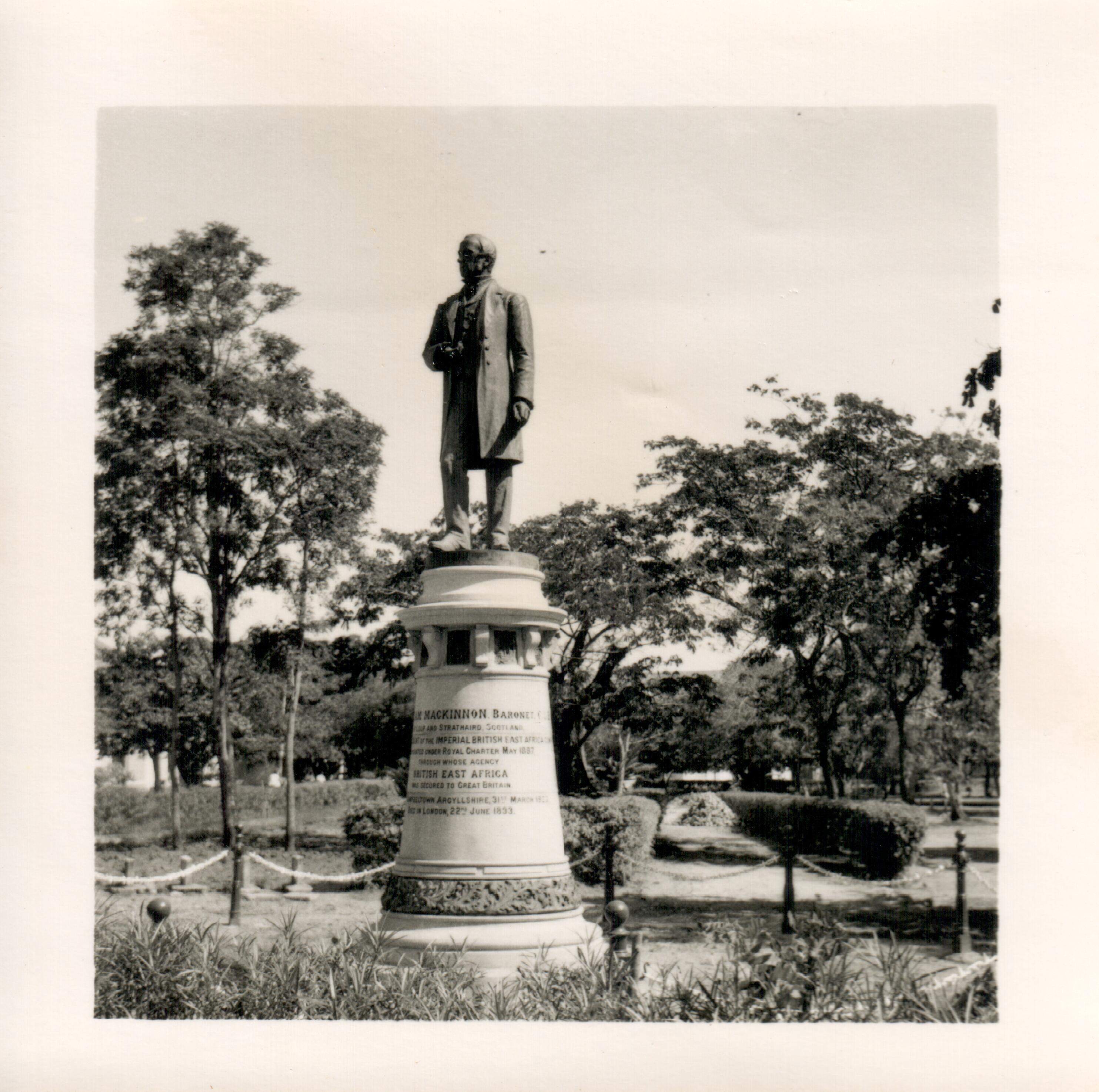|
Anthony Inglis (shipbuilder)
Anthony Inglis, (1813–1884) was a Scottish journeyman blacksmith, engineer and shipbuilder who set-up and managed the well known shipyard A. & J. Inglis in Pointhouse Glasgow together with his brother John Inglis. Career In 1837 he founded a company to provide smithwork especially to shipbuilders, from premises in Anderston. In 1847 his younger brother, John Inglis (1819–1888), joined him, who had learned the craft of marine engineering and whose practicable skills added another dimension to the company. Together they founded the company A. & J. Inglis in 1847. They moved to larger premises in Warroch Street, Anderston, where they began to focus on marine work. In 1850 they obtained their first major marine contract, to supply the machinery for the tug ‘Clyde’. From then onwards the company grew in strength and rapidly earned a reputation for ability and at least equality to much larger and longer established firms. In 1855, the Inglis brothers provided the machiner ... [...More Info...] [...Related Items...] OR: [Wikipedia] [Google] [Baidu] |
A And J Inglis
A & J Inglis, Ltd, was a shipbuilding firm founded by Anthony Inglis and his brother John, engineers and shipbuilders in Glasgow, Scotland in 1862. The firm built over 500 ships in a period of just over 100 years. Their Pointhouse Shipyard was at the confluence of the rivers Clyde and Kelvin. They constructed a wide range of ships, including Clyde steamers, paddle steamers and small ocean liners. In wartime, they built small warships, and in the period after World War II, they built a number of whalers. History A & J Inglis of Glasgow was formed in 1848 as an engineering works. Thomas B. Seath founded the shipyard at Pointhouse in 1845 and it was acquired by A & J Inglis in 1862. In 1884 Anthony Inglis died and his son John Inglis took over. John Inglis himself, was well known for many maritime activities. In 1885 they launched 11 ships with a total tonnage of 7,470 tons. In 1867, a ''Patent Slip Dock'' for ship repairs was built at Pointhouse. This was an innovative alte ... [...More Info...] [...Related Items...] OR: [Wikipedia] [Google] [Baidu] |
Anderston
Anderston ( sco, Anderstoun, gd, Baile Aindrea) is an area of Glasgow, Scotland. It is on the north bank of the River Clyde and forms the south western edge of the city centre. Established as a village of handloom weavers in the early 18th century, Anderston was an independent burgh of barony from 1824 until it was incorporated into the City of Glasgow in 1846. The district is served by Anderston railway station. Foundation of Anderston The land on which the present day district of Anderston stands was once known as the Bishop's Forest. These lands, situated to the west of medieval Glasgow, were granted to the Bishop of Glasgow by King James II of Scotland in 1450. The lands of Stobcross, which occupied part of this area, were the property of the Anderson family from the mid-16th century, and here they built their mansion, Stobcross House. Tradition has it that the name came from a wooden cross or ‘stob’ which marked the spot. Stobcross House was demolished in 1875 to ma ... [...More Info...] [...Related Items...] OR: [Wikipedia] [Google] [Baidu] |
Sir William Mackinnon, 1st Baronet
Sir William Mackinnon, 1st Baronet, (13 March 1823 – 22 June 1893) was a Scottish ship-owner and businessman who built up substantial commercial interests in India and East Africa. He established the British-India Steam Navigation Company and the Imperial British East Africa Company. Biography Early life He was born in Campbeltown, Argyll, and after starting in the grocery trade there, went to Glasgow and worked for a merchant who had Asian trading interests. Career Mackinnon went to India in 1847 and joined an old schoolfriend, Robert Mackenzie (trader), Robert Mackenzie, in the coasting trade, carrying merchandise from port to port around the Bay of Bengal. Together they formed the firm of Inchcape plc, Mackinnon Mackenzie & Co and Mackinnon chose to make Cossipore the base for his own activities. In 1856 he founded the shipping company Calcutta and Burma Steam Navigation Company, which would become British India Steam Navigation Company in 1862. It grew into a huge busine ... [...More Info...] [...Related Items...] OR: [Wikipedia] [Google] [Baidu] |
British India Steam Navigation Company
British India Steam Navigation Company ("BI") was formed in 1856 as the Calcutta and Burmah Steam Navigation Company. History The ''Calcutta and Burmah Steam Navigation Company'' had been formed out of Mackinnon, Mackenzie & Co, a trading partnership of the Scots William Mackinnon and Robert Mackenzie, to carry mail between Calcutta and Rangoon. It became British India SN Co in 1862. Under the hand of Lord Inchcape, who had become chairman in 1913, the company became part of the P&O group of companies in 1914 through a complex amalgamation, but continued with its own identity and organisation for another nearly 60 years until 1972, when it was entirely absorbed into P&O. Fleet and routes As one of the largest shipowners of all time, the company owned more than 500 ships and managed 150 more for other owners. At its height in 1922, BI had more than 160 ships in the fleet, many built on Clydeside, Scotland. The main shipping routes of the line were: Britain to India, Australi ... [...More Info...] [...Related Items...] OR: [Wikipedia] [Google] [Baidu] |
Imperial British East Africa Company
The Imperial British East Africa Company (IBEAC) was a commercial association founded to develop African trade in the areas controlled by the British Empire. The company was incorporated in London on 18 April 1888 and granted a royal charter by Queen Victoria on 6 September 1888. It was led by William Mackinnon and built upon his company's trading activities in the region, with the encouragement of the British government through the granting of an imperial charter, although it remained unclear what that actually meant. The IBEAC oversaw an area of about along the eastern coast of Africa (from modern-day Somalia to modern-day Kenya), its centre being at about 39° East longitude and 0° latitude. Mombasa and its harbour were central to its operations, with an administrative office about south in Shimoni. It granted immunity of prosecution to British subjects and allowed them the right to raise taxes, impose custom duties, administer justice, make treaties and otherwise act as ... [...More Info...] [...Related Items...] OR: [Wikipedia] [Google] [Baidu] |
John Inglis (Shipbuilder)
John Inglis LLD (1842 in Glasgow – 1919) was a Scottish engineer and shipbuilder who managed the well-known shipyard A. & J. Inglis in Pointhouse Glasgow, which had been set up by his father Anthony Inglis and his uncle John Inglis. Career He was brought up at 76 Clyde Street in the Anderson district of Glasgow. John Inglis left school at the age of 14 years and entered Glasgow University where, although his objective was engineering science, he studied the Arts. He gained high distinctions in Mathematics, Natural Philosophy and Engineering Science. On completion of his academic studies he then was apprenticed as an engineer in the shipyard of his father and uncle, just like any other candidate for an engineering profession. To prepare himself for the foreseeable managing role he moved from department to department, from machine shop to drawing office, from moulding loft to building yard, and gained experience in all aspects of the business.Angus Mac KinnoMessrs. A. & J. ... [...More Info...] [...Related Items...] OR: [Wikipedia] [Google] [Baidu] |
1813 Births
Events January–March * January 18–January 23 – War of 1812: The Battle of Frenchtown is fought in modern-day Monroe, Michigan between the United States and a British and Native American alliance. * January 24 – The Philharmonic Society (later the Royal Philharmonic Society) is founded in London. * January 28 – Jane Austen's '' Pride and Prejudice'' is published anonymously in London. * January 31 – The Assembly of the Year XIII is inaugurated in Buenos Aires. * February – War of 1812 in North America: General William Henry Harrison sends out an expedition to burn the British vessels at Fort Malden by going across Lake Erie via the Bass Islands in sleighs, but the ice is not hard enough, and the expedition returns. * February 3 – Argentine War of Independence: José de San Martín and his Regiment of Mounted Grenadiers gain a largely symbolic victory against a Spanish royalist army in the Battle of San Lorenzo. * February ... [...More Info...] [...Related Items...] OR: [Wikipedia] [Google] [Baidu] |
1884 Deaths
Events January–March * January 4 – The Fabian Society is founded in London. * January 5 – Gilbert and Sullivan's ''Princess Ida'' premières at the Savoy Theatre, London. * January 18 – Dr. William Price attempts to cremate his dead baby son, Iesu Grist, in Wales. Later tried and acquitted on the grounds that cremation is not contrary to English law, he is thus able to carry out the ceremony (the first in the United Kingdom in modern times) on March 14, setting a legal precedent. * February 1 – ''A New English Dictionary on historical principles, part 1'' (edited by James A. H. Murray), the first fascicle of what will become ''The Oxford English Dictionary'', is published in England. * February 5 – Derby County Football Club is founded in England. * March 13 – The siege of Khartoum, Sudan, begins (ends on January 26, 1885). * March 28 – Prince Leopold, the youngest son and the eighth child of Queen Victoria and Prin ... [...More Info...] [...Related Items...] OR: [Wikipedia] [Google] [Baidu] |
Scottish Engineers
Scottish usually refers to something of, from, or related to Scotland, including: *Scottish Gaelic, a Celtic Goidelic language of the Indo-European language family native to Scotland *Scottish English *Scottish national identity, the Scottish identity and common culture *Scottish people, a nation and ethnic group native to Scotland *Scots language, a West Germanic language spoken in lowland Scotland *Symphony No. 3 (Mendelssohn), a symphony by Felix Mendelssohn known as ''the Scottish'' See also *Scotch (other) *Scotland (other) *Scots (other) *Scottian (other) *Schottische The schottische is a partnered country dance that apparently originated in Bohemia. It was popular in Victorian era ballrooms as a part of the Bohemian folk-dance craze and left its traces in folk music of countries such as Argentina ("chotis"Span ... * {{disambiguation Language and nationality disambiguation pages ca:Escocès ... [...More Info...] [...Related Items...] OR: [Wikipedia] [Google] [Baidu] |
Scottish Shipbuilders
Scottish usually refers to something of, from, or related to Scotland, including: *Scottish Gaelic, a Celtic Goidelic language of the Indo-European language family native to Scotland *Scottish English *Scottish national identity, the Scottish identity and common culture *Scottish people, a nation and ethnic group native to Scotland *Scots language, a West Germanic language spoken in lowland Scotland *Symphony No. 3 (Mendelssohn), a symphony by Felix Mendelssohn known as ''the Scottish'' See also *Scotch (other) *Scotland (other) *Scots (other) *Scottian (other) *Schottische The schottische is a partnered country dance that apparently originated in Bohemia. It was popular in Victorian era ballrooms as a part of the Bohemian folk-dance craze and left its traces in folk music of countries such as Argentina ("chotis"Span ... * {{disambiguation Language and nationality disambiguation pages ca:Escocès ... [...More Info...] [...Related Items...] OR: [Wikipedia] [Google] [Baidu] |
Defunct Shipbuilding Companies Of Scotland
{{Disambiguation ...
Defunct (no longer in use or active) may refer to: * ''Defunct'' (video game), 2014 * Zombie process or defunct process, in Unix-like operating systems See also * * :Former entities * End-of-life product * Obsolescence Obsolescence is the state of being which occurs when an object, service, or practice is no longer maintained or required even though it may still be in good working order. It usually happens when something that is more efficient or less risky r ... [...More Info...] [...Related Items...] OR: [Wikipedia] [Google] [Baidu] |
Marine Engine Manufacturers
Marine is an adjective meaning of or pertaining to the sea or ocean. Marine or marines may refer to: Ocean * Maritime (other) * Marine art * Marine biology * Marine debris * Marine habitats * Marine life * Marine pollution Military * Marines, a naval-based infantry force ** United States Marine Corps ** Royal Marines of the UK ** Brazilian Marine Corps ** Spanish Marine Infantry ** Fusiliers marins (France) ** Indonesian Marine Corps ** Republic of China Marine Corps ** Republic of Korea Marine Corps ** Royal Thai Marine Corps *"Marine" also means "navy" in several languages: ** Austro-Hungarian Navy () ** Belgian Navy (, , ) ** Royal Canadian Navy () *** Provincial Marine (1796–1910), a predecessor to the Royal Canadian Navy ** Navy of the Democratic Republic of the Congo () ** Royal Danish Navy () ** Finnish Navy (, ) ** French Navy () ** Gabonese Navy () ** German Navy () ** Royal Moroccan Navy () ** Royal Netherlands Navy () ** Swedish Navy () Places * M ... [...More Info...] [...Related Items...] OR: [Wikipedia] [Google] [Baidu] |






